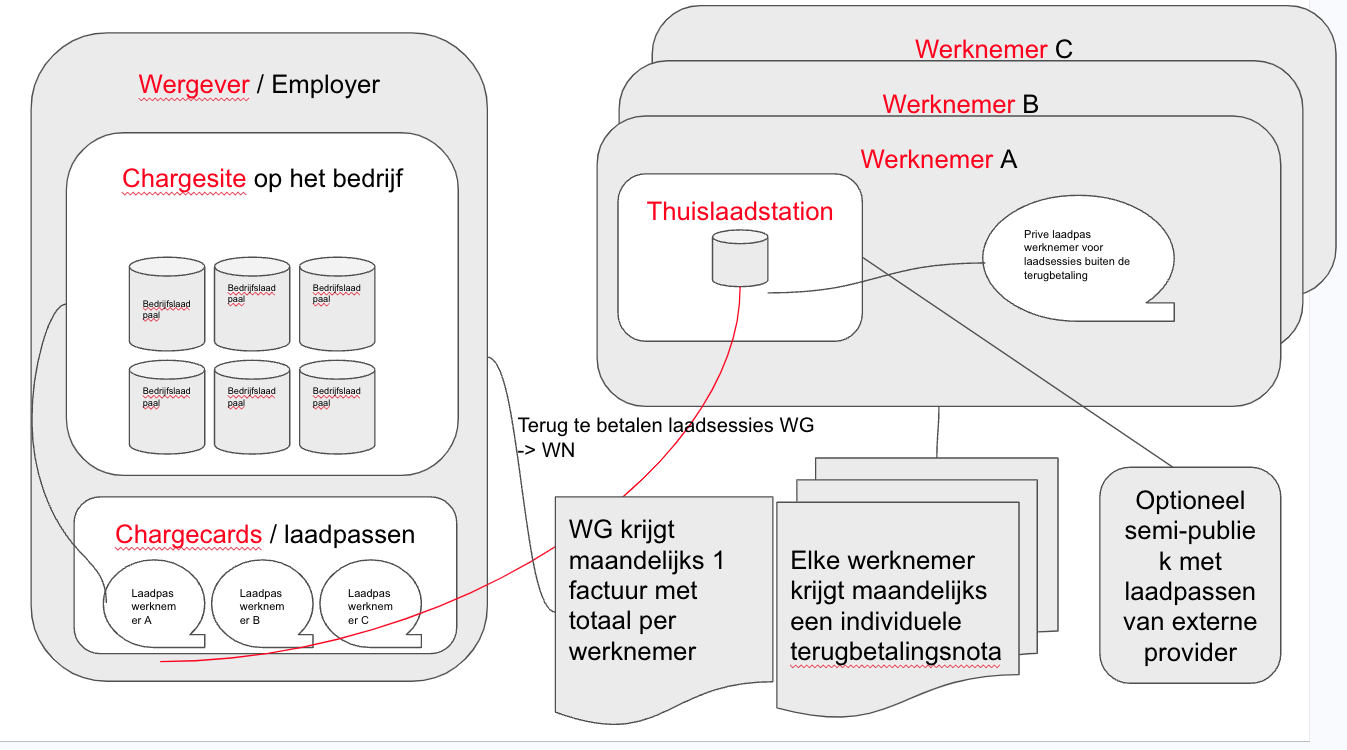- Home
- Knowledge base
- Split-billing
- What does split-billing mean?
What does split-billing mean?
Here's how split billing works with home charging for electric vehicles (EVs) and employer reimbursement:
The scenario:
You have an EV that you use both privately and for work.
You charge your EV at home and want your employer to pay the electricity costs for your work-related mileage.
How Split Billing Works:
Smart Charger: You need a smart charger at home that can track electricity used specifically for charging your EV.
Split Billing: Your smart charger can split electricity use into two categories:
Personal charging costs
Work-related charging costs
CPO platform: Your employer probably works with a Charge Point Operator (CPO) platform. This platform manages the reimbursement process for work-related EV charging by employees.
Reimbursement:
The CPO platform receives data on your work-related charging charges from your smart charger.
Your employer receives an invoice from the CPO platform with the electricity costs for your work-related mileage.
Your employer pays that invoice and CPO reimburses you for your work-related charging costs.
Benefits of Split Billing for home EV charging:
Accurate reimbursement: Ensures you are reimbursed for the exact amount of electricity you use for work.
Employee cost savings: You don't pay out of pocket for work-related charging.
Encourages EV use: Makes it more attractive for employees to drive EVs, knowing that work-related charging costs are covered.

Let me know if you have any questions about home EV charging and split billing!
Related articles
Did this answer your question
Thank you for your feedback
Did not find an answer?
Our team is just an email away and ready to answer your questions